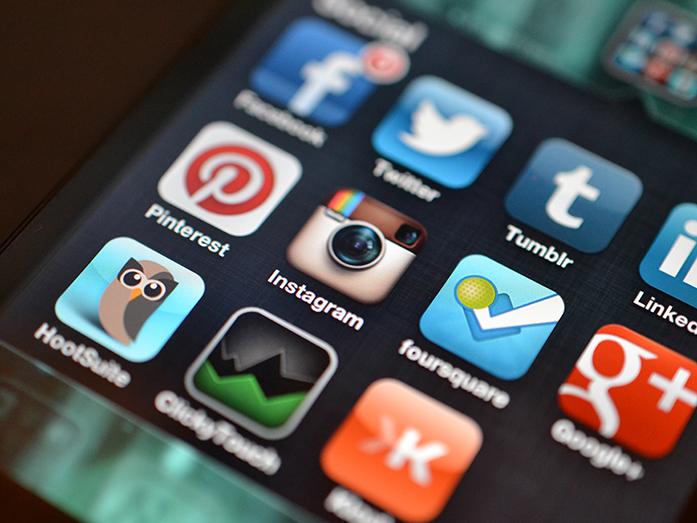By Gage Miskimen
Branding, usually associated with companies and products, is becoming more important for anyone with an online presence in today’s social-media driven society.
Travis Vogan, a University of Iowa assistant professor of journalism, said a key feature of social media is building what’s known as a personal brand, protecting it, and using it for personal strategy. Personal branding is the practice of people marketing themselves and sometimes their careers as brands.
“I think there’s an increasing look at social media as a professionalized space,” Vogan said.
He said personal branding and casual social media use are not the same.
“There is a difference between someone as a person and someone as a brand, and social media makes this easier to do,” he said. “Sometimes that can be done in positive ways or in negative ways.”
Vogan said some people think of social media simply as a fun, recreational activity — not realizing they are constantly marketing themselves and their personal brand.
“Some people get around that by building an alternative profile or only using Instagram for fun,” he said.
UI sophomore Alex Christensen said the way she presents herself online depends on what platform she’s using.
“My Twitter is more for me and my friends and depicts a more fun side of my life,” she said. “Facebook is more for my family, and I’ve used LinkedIn to represent the professional aspects of my life.”
UI freshman Joshua Tigges said he prefers to use social media for fun and entertainment.
“I think most college students use it in the form of staying in the loop and for entertainment,” he said.
UI sophomore Hunter Gillaspie said he tries to portray himself the same way across the various social-media sites he uses for a variety of things.
“I use Facebook to give updates on my major life events, to keep up with news and politics, and to market events that my student organizations are putting on,” he said. “I use Twitter for less major events or to just tweet random things.”
Vogan said college students seem more careful in how they operate on line then in the past.
“College people today are savvier toward social media,” he said. “Five years ago, it wasn’t uncommon for college students to act with less caution online.”
Tigges disagreed, saying many college students still don’t realize the repercussions their actions online could have.
“People don’t realize it could affect your job opportunities in the future,” he said. “I have fun, but I still try to keep it professional because I want future employers to see me as a potentially good employee.”
Gillaspie said he thinks students should keep it professional as well.
“I think it’s best for college students to keep their posts constructive even if they may be argumentative or opinionated,” he said.
Vogan added social media make the idea of a “me-society” more visible.
“There’s more documentation about the narcissism social media foster,” he said.
Tigges said some users brand themselves contrary to who they are.
“Social media make it easier for some people to try to portray themselves as something they’re not,” he said.







